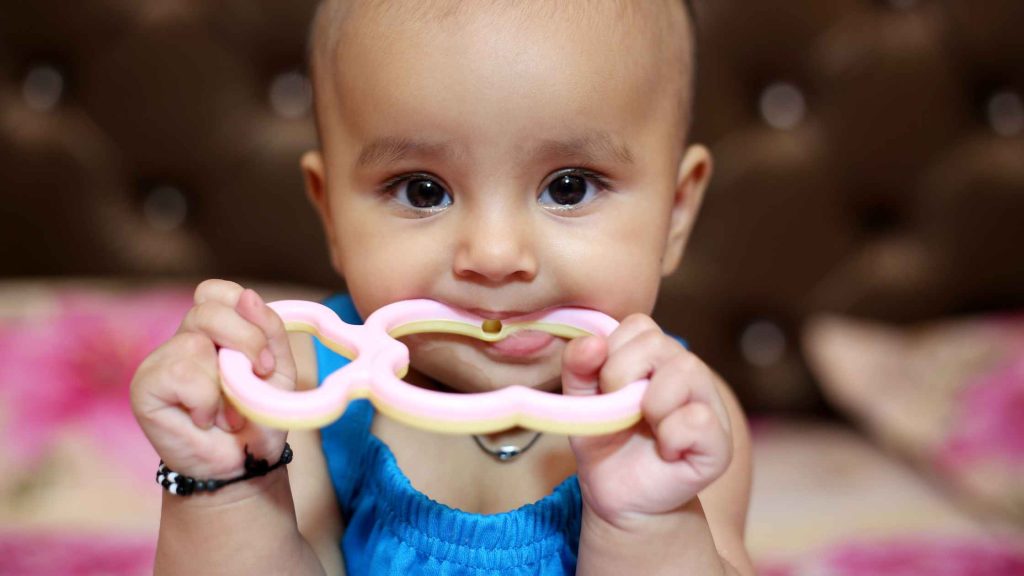
Is Your Baby Tilting Its Head to Its Shoulder? Here Are 6 Possible Causes!
- Created:
23. 11. 2022 - Updated:
11. 6. 2024
We all know:
Babies genuinely melt our hearts, especially with their random cute faces when they see something exciting.
As mothers, understanding their needs and communicating with them makes us feel connected.
On the flip side:
Seeing our teething baby hurting or exhibiting peculiar symptoms worries us, especially when we can’t figure out why.
One of those behavioral patterns is the tilting of the head to the shoulder.
Get this:
As babies grow, their muscles develop, and they begin to move their body parts and use them confidently.
Consequently:
You may notice your baby tilting its head to its shoulder more often than normal. This may be because it’s trying to concentrate on something, is excited, or is in pain.
Now:
If your baby keeps tilting its head to its shoulder, relax! We have all the answers you need.
Is Your Baby Tilting Its Head to Its Shoulder? Here Are 6 Possible Causes!
Now:
There’s no general reason for the head tilt; however, we’ve taken the time to highlight some potential reasons and tips to help your baby stop. Let’s dive in!
1. General Discomfort

Here’s the thing:
If your baby looks uncomfortable when tilting its head to one side, it might be because it feels internal or external discomfort.
You’d need to contact your child’s pediatrician for advice if you can’t discover the reason for the head tilt.
2. Coping Mechanism
Listen:
Your child might be tilting its head to its shoulder and tugging on its ears to relieve some pain.
Sometimes, gum inflammation radiates into the ear canal, and babies may start to feel an ache, making them tilt their heads.
3. Excitement

Look:
If your baby smiles while tilting their head to the side, it could mean they are excited to see something or someone.
It’s a good way to know when they are enjoying a moment.
4. Concentration
You see:
Babies might tilt their heads to one side because they are trying to concentrate on something.
There might be something piquing their interest or arresting their attention.
5. Teething

Fact:
Teething, also called odontiasis, is when a baby’s teeth starts to cut through its gums. It is a fairly common reason babies tilt their heads to the shoulder.
6. Torticollis
Understand this:
Torticollis occurs when the neck muscles are not properly developed, causing the head to twist and tilt to the shoulder.
It is sometimes caused by abnormal positioning of the child in the womb, often resulting in shorter neck fibers on one end.
However:
It’s not usually noticed in early infancy since babies cannot position their heads upright at this stage.
In addition:
Torticollis sometimes develops after birth due to trauma or neck injuries during the baby’s birth or due to improper sleeping positions.
In this case:
Schedule an appointment with your child’s pediatrician for immediate treatment.

How Can I Stop My Baby From Tilting Its Head to Its Shoulder?
Now:
One way to stop your baby from tilting its head to the side is by guiding it in both directions.
Regularly doing this will help reduce the pressure on tense neck muscles. Slowly and surely, your baby should lose the habit of tilting its head to its shoulder.
Also:
Another good way to help your baby stop tilting his head is to take your child for physical therapy.
The therapist will evaluate and diagnose your child and then create a plan to curb the problem.
Final Tip: Track Your Baby’s Development with Annie Baby Monitor Milestone Tracker
If you’ve noticed your little one tilting their head to the shoulder, it’s time for the Annie Baby Monitor milestone tracker!
Keep track of the baby’s development.
Use the milestone tracker to log and record baby milestones, making it easier to discuss concerns with your pediatrician.
The milestone tracker on the Annie Baby Monitor is a tool to stay involved in your baby’s development journey and make sure your baby reaches all the important milestones.

You can learn more about the Annie Baby Monitor tracker here.
Don’t miss the chance to create lasting memories. Get your Annie Baby Monitor.
Conclusion
Essentially:
Taking time to study and understand your baby’s body language when it tilts its head is the first step in identifying the problem.
Remember the following:
- Helping your baby stop tilting its head to the shoulder requires much patience.
- You should introduce recommended toys and healthy practices to help stop your teething baby from tilting its head to its shoulder.
- Tilting is not always a bad sign. It can also be caused by excitement or deep concentration.
Finally:
We would like to know what you think!
Kindly share your experience and additions with us in the comment section below.
Frequently Asked Questions About Babies Tilting Their Heads
Your baby’s head tilt might not be a symptom of anything health-related. It could be because of deep concentration or even excitement. However, in some cases, it could be due to teething or toricollis.
If your baby shows signs of discomfort or pain when tilting his head, he might be hurting internally or physically.
Visit your child’s pediatrician if none of the symptoms above can be associated with your baby’s head tilt.
You can tell your baby has an ear infection or is teething if they exhibit certain symptoms. These include changes in sleeping or eating patterns, sore and swollen gums, constant head tilts, or difficulty hearing or responding to auditory cues.






